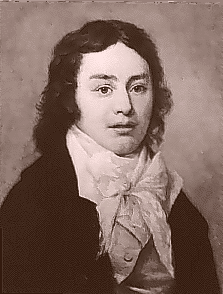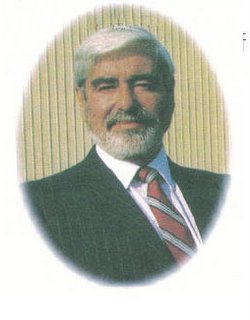
One of the great Romantic Poets, John Keats was born in London on October 31, 1795. He died in Rome of tuberculosis at the age of 25, on February 23, 1821.
Keats told his friend Joseph Severn that he wanted on his grave just the line, "Here lies one whose name was writ in water."
Percy Bysshe Shelley, who admired Keats' work, celebrated Keats' greatness in his magnificent long elegy, Adonais --
He has outsoared the shadow of the night;
Envy and calumny and hate and pain,
And that unrest which men miscall delight,
Can touch him not and torture not again.
--excerpt from Adonais by Percy Bysshe Shelley
Best known perhaps for his beautiful Odes (To a Nightingale, On a Grecian Urn...), here are some sonnets by Keats:
When I Have Fears that I may Cease to be
When I have fears that I may cease to be
Before my pen has glean’d my teeming brain,
Before high piled books, in charact’ry,
Hold like rich garners the full-ripen’d grain;
When I behold, upon the night’s starr’d face,
Huge cloudy symbols of a high romance,
And think that I may never live to trace
Their shadows, with the magic hand of chance;
And when I feel, fair creature of an hour!
That I shall never look upon thee more,
Never have relish in the faery power
Of unreflecting love!—then on the shore
Of the wide world I stand alone, and think
Till Love and Fame to nothingness do sink.
Bright Star, Would I Were Steadfast As Thou Art
Bright star, would I were steadfast as thou art—
Not in lone splendour hung aloft the night
And watching, with eternal lids apart,
Like nature's patient, sleepless Eremite,
The moving waters at their priestlike task
Of pure ablution round earth's human shores,
Or gazing on the new soft-fallen mask
Of snow upon the mountains and the moors—
No—yet still steadfast, still unchangeable,
Pillow'd upon my fair love's ripening breast,
To feel for ever its soft fall and swell,
Awake for ever in a sweet unrest,
Still, still to hear her tender-taken breath,
And so live ever—or else swoon to death.
O Solitude! If I Must With Thee Dwell
O Solitude! if I must with thee dwell,
Let it not be among the jumbled heap
Of murky buildings: climb with me the steep,—
Nature's observatory—whence the dell,
In flowery slopes, its river's crystal swell,
May seem a span; let me thy vigils keep
'Mongst boughs pavilioned, where the deer's swift leap
Startles the wild bee from the foxglove bell.
But though I'll gladly trace these scenes with thee,
Yet the sweet converse of an innocent mind,
Whose words are images of thoughts refined,
Is my soul's pleasure; and it sure must be
Almost the highest bliss of human-kind,
When to thy haunts two kindred spirits flee.
--John Keats
~
Cat


